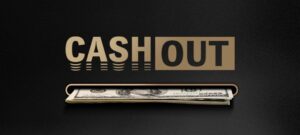 Part of the joy of cashing out any bet is that only the power of hindsight can determine whether or not cashing out was the right decision. One occasion when it definitely was not was in the case of Bailey Grant, who staked £1.06 each-way on a seven-fold accumulator, through the card, on the fourth day of Royal Ascot in June, 2022.
Part of the joy of cashing out any bet is that only the power of hindsight can determine whether or not cashing out was the right decision. One occasion when it definitely was not was in the case of Bailey Grant, who staked £1.06 each-way on a seven-fold accumulator, through the card, on the fourth day of Royal Ascot in June, 2022.
Grant correctly selected Meditate (10/3), Perfect Power (7/2) and Candleford (6/1) in the the first three races and, having rejected the option to cash out for £125.48, watched his fourth selection, Inspiral (3/1) go clear in the final furlong for an impressive, 4¾-length win in the Coronation Stakes. Sensational though the filly may have been, Grant lost his nerve and, with three selections yet to run, cashed out his bet for £463.75.
Of course, it can be argued that £463.75 is a healthy return for an initial outlay of £2.12, but if Grant was happy with less than £500, why, you may ask, did he include seven selections in his bet? In any event, he trusted his instincts, which, on this occasion, failed him miserably. Selections five, six and seven, Heredia (4/1), Changingoftheguard (13/8) and Latin Lover (10/1), all won, at prices better than starting price, leaving Grant to rue his earlier decision. Had he lasted the distance, his total return would have been £83,638.75.
In the face of questioning about cashing out a bet that cost £2.12, Grant tweeted, ‘Some of you on here [Twitter] don’t have the brains to think about it financially! Imagine if one of them got placed or came nowhere in the race.’ Of course, some return is better than no return at all, but short-changing yourself by tens of thousands of pounds, when all you really needed to do was, well, nothing, must be a chastening experience, whatever Grant says.